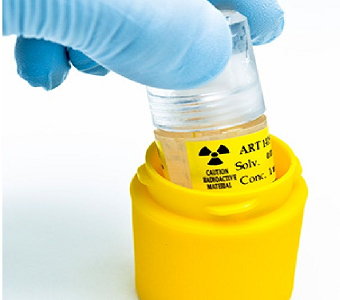- Major shareholders exercising influence at Neptune; same group had positive impact at Sarepta (SRPT) in 2010.
- Combined with business developments over the next month, activism may bring new investors into the story.
Four of Neptune Technologies and Bioresources (NEPT) largest shareholders jointly filed a 13D on Thursday, April 10, and it appears this crowd, with a history of activism, intends to affect some change at the Canadian manufacturer of krill oil supplements. The 13D cites as purpose a belief “that the Company should implement changes to the Board of Directors and management with the ultimate objective of improving the Company’s profitability and share price performance.” All four of these investors, George Haywood, Con Egan, Conor O’Driscoll, and Fulvio Dobrich, were influential in the ouster of former Sarepta Therapeutics’ (SRPT), then AVI Biopharma, CEO Les Hudson in 2010 before the stock climbed multi-fold as eteplirsen came into focus as a treatment for DMD.
PropThink interviewed Haywood in January, discussing his involvement with Sarepta and Neptune.
The similarities to AVI are stark, though these investors own more of NEPT on a percentage basis (15.3% vs. 11.9%), than the same group did of AVI in 2010. For those following Neptune, the 13D and apparent attempt to influence change at the top don’t come as a major surprise given the history of these players. Neptune conducted a secondary stock offering in March that priced at a substantial discount to market, frustrating many shareholders. Additionally, we note that three of Neptune CEO Henri Harland’s sons hold executive positions at Neptune subsidiaries, Acasti (ACST) and NeuroBioPharm. Poor governance isn’t something we like to see at a publicly traded company. We view this activism from shareholders as a positive development in the story.
To understand why Neptune piqued our interest this year, read our previous coverage.
Neptune shored up its balance sheet ahead of the Sherbrooke, Quebec facility re-launch by raising capital in two separate transactions this year, grossing $31 million. The company announced the first transaction after market close on February 27, and raised $29 million by issuing 11.5m shares (including the underwriter’s allotment) at $2.50/share, a stark discount to the close at $2.98 and highs at $3.40 that week. In the second transaction, Neptune issued 907k shares in a private placement for $2.2m.
In late March Neptune announced that reconstruction of its Sherbrooke production facility would be complete on April 7, with production commencing on receipt of outstanding permits. The new facility will have the capacity to produce more than 150 metric tons of krill oil annually and has the required space to double capacity down the road. In addition, on April 1 the company and competitor Enzyometec (ENZY) revealed that they have been unable to conclude a settlement agreement through mediation, settlement that would resolve the International Trade Commission’s (ITC) investigation into infringement of Neptune’s primary patents. This development came as a surprise, as other major players in the space have fallen in line and agreed to favorable settlements with Neptune (royalties and backpay). To understand this dynamic more, click here to read our previous report. The story continues to develop, and with Enzymotec, last of the major players to hold out, jumping out of line, we’re taking a closer look at IP developments. On April 28, the ITC hearing will commence, and a decision should follow within two to three months.
PropThink or its contributors have taken a long position in NEPT.




